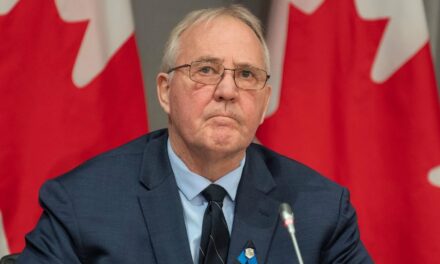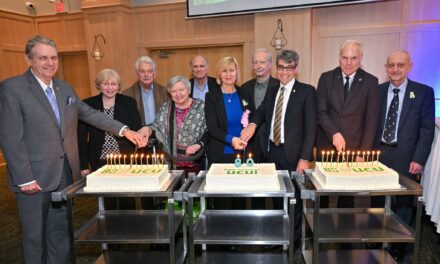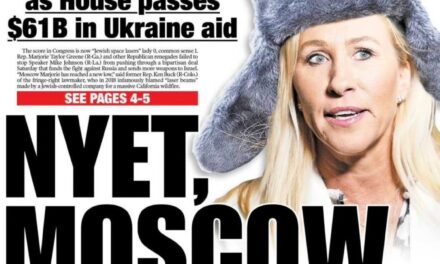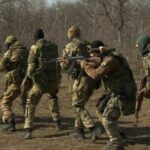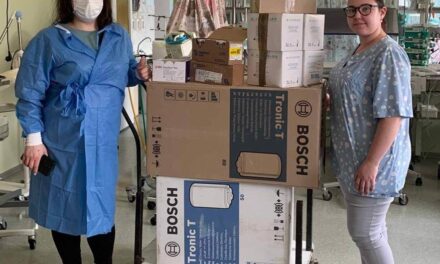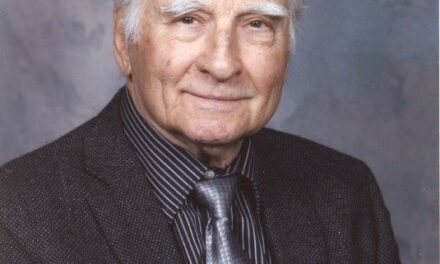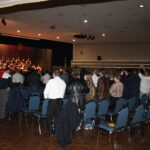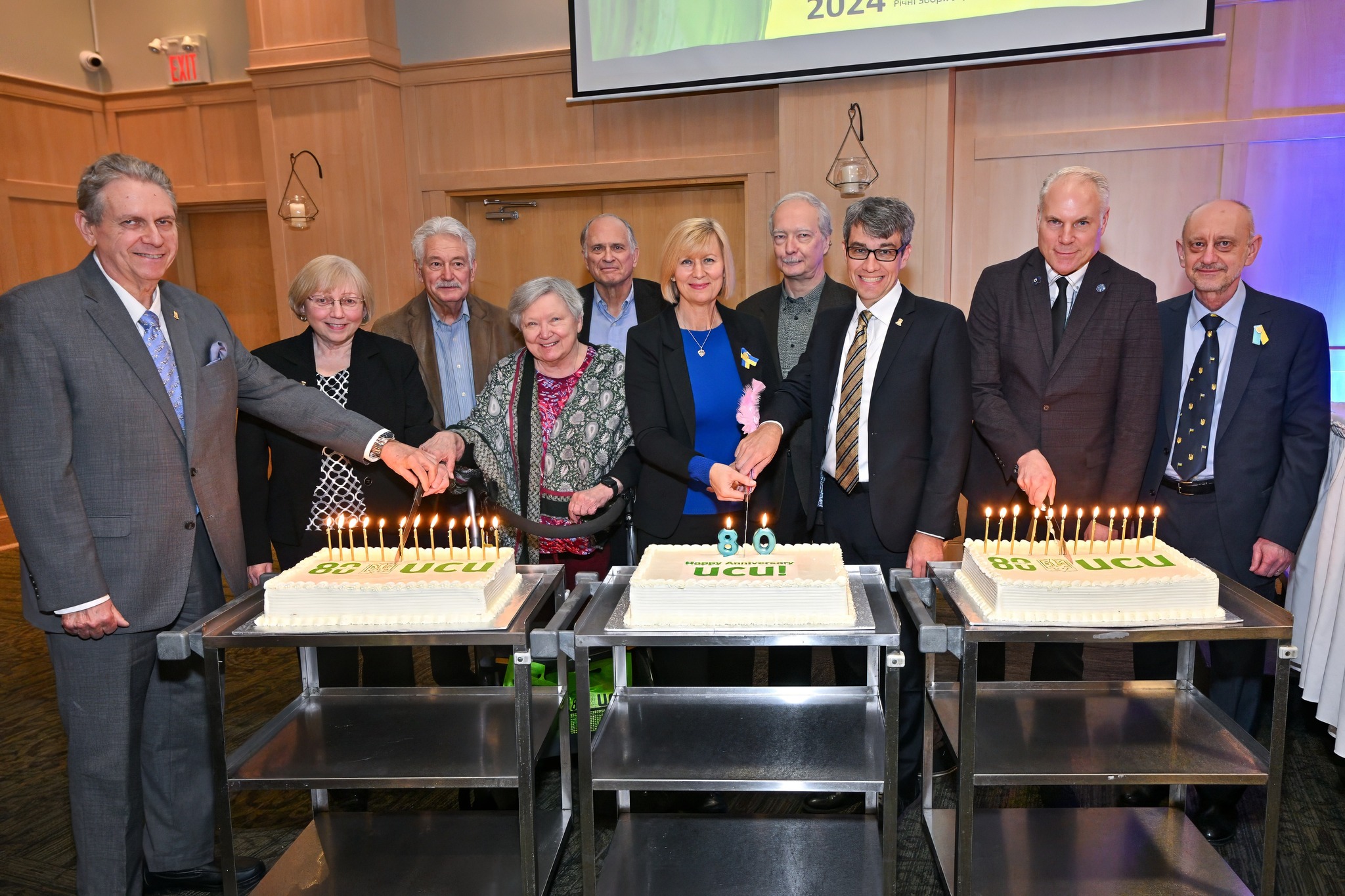Erik Kucherenko
For NP-UN
When I applied for the Canada-Ukraine Parliamentary Program internship three and a half years ago, in December 2019, little did I know what would follow. The COVID-19 pandemic and full-scale invasion of Ukraine by the Russian Federation have drastically and irrevocably changed the world. Yet over time, the relevance of participation in the CUPP only grew. The escalation of the Russian aggression into a full-scale invasion only strengthened my urge to use this opportunity and promote Ukraine in Canadian political circles.
Despite numerous difficulties that I and my colleague on the Program Oleh Melnychenko encountered in our attempts to finalize all arrangements at such a difficult time, we managed to arrive and participate in the program. This became possible through the active and generous support of Ihor Bardyn, CUPP’s founder, Anna Lachykhina, Max Dzhyhun, Yuliia Shaipova, Artem Shaipov, and Vladyslava Aleksenko, CUPP Alumni, Lesya and Lubomyr Chabursky.
The Hill experience
With just over a month to spend in Ottawa, there was not much time for gradual adaptation. On the second day of my internship with Hon. Judy A. Sgro, determined to defy the jet lag, I had an opportunity to join an amazing event dedicated to the Sürgünlik – the deportation of the Crimean Tatar people in 1944. Having been to Crimea over 15 times before 2014, I was very touched by the event, in particular by the testimonies of the Crimean Tatar community living in Canada. I was also happy to meet Natalie Mychajlyszyn, an analyst at the Library of Parliament, with whom I had had the privilege to work at Inter-Parliamentary Union Assemblies representing the Verkhovna Rada of Ukraine.
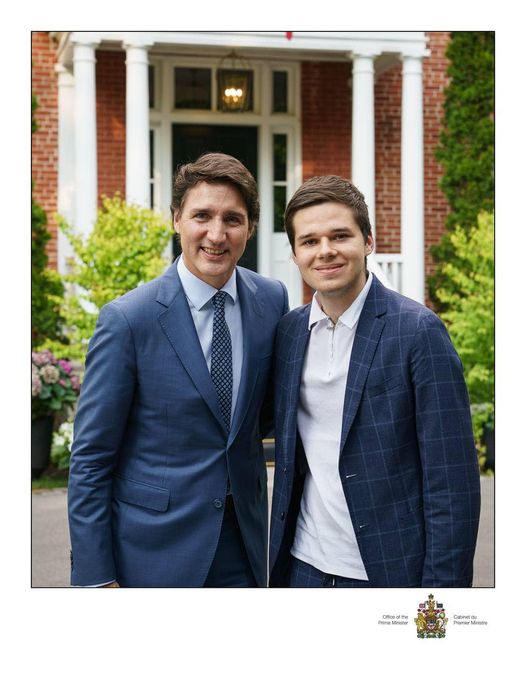
Erik Kucherenko (right) and Justin Trudeau
The time to make new acquaintances came very soon – just on the following day, we had the Vyshyvanka Day on the Hill. It was an absolutely unforgettable experience to go to the West Block, straight to the House’s Chamber, to celebrate Ukrainian culture. I had an opportunity to meet the CUPP community on the Hill. I was also fortunate to talk to MP Yvan Baker and members of his team. We discussed our future cooperation and his dedication to Ukraine’s victory. In just a week, he demonstrated this devotion by deed – when I requested his team to take on my CUPP colleague Oleh Melnychenko as his intern, he readily agreed despite all the constraints the end of the parliamentary session and financial year may lead to.
My work in the office of Hon. Judy A. Sgro covers a wide range of duties, including preparing advocacy letters to draw the attention of the Minister of Immigration and the UNHCR to asylum seekers’ precarious situations, writing social media content, conducting research, and organizing meetings. I also suggest ideas on my own initiative – for instance, I draw on my previous experience in the Verkhovna Rada of Ukraine and the European Parliament to draft motions for resolution on the UN reform, ensuring accountability for Russian crimes, and giving an impetus to confiscation of Russian assets. It was a very enlightening exercise, by the way, as Canadian motions, with their emphasis on conciseness, are quite different from the European Parliament resolutions with their two preambles.
I also do my best to reach out every day to my colleagues on Parliament Hill to get a deeper sense of their work. This is how I met Canadian MPs and their teams to discuss human rights violations by the Russian invading forces and the relevance of Ukraine’s experience in digital governance for Canada. We also discussed cooperation between youth wings of Canadian and Ukrainian political parties with Liam Olsen, the newly elected leader of the Young Liberals of Canada.
Striving to promote and amplify the Ukrainian voice, I also decided to submit an op-ed to The Hill Times. I was shocked by the Russian missile attack which killed a child on 1 June – the day when Ukraine was supposed to mark International Children’s Day. With President Zelenskyy having unveiled his plan for engaging foreign partners in returning and rehabilitating Ukrainian children deported to Russia, I decided to highlight several ways in which Canada could make its contribution to saving Ukrainian children. I hope that this publication will impact Canadian policy in this area.
Of course, trying to immerse myself into the Canadian context, I hardly spent a single hour without thinking of Ukraine and following the events there. In fact, a part of this article was written at the time when the first reports on the destruction of the Nova Kakhovka dam began to appear. A true man-made environmental disaster, with over 80 towns likely to be flooded and a threat to thousands of Ukrainians and animals living in the Kherson region. And a boost of motivation to keep up the work, seek new ways to promote Ukraine, and contribute to the victorious end of this terrible war.
Strengthening the link of the state with Ukrainians abroad
Apart from promoting Ukraine in Canada and supporting the office of my MP, I also did a lot of thinking on my contribution to Ukraine’s development and reconstruction upon my return home on 20 June (I admit, an unorthodox way to spend free time, but still). Traveling across Canada, visiting Toronto and Montreal, exploring Ottawa, and going to Niagara Falls, the Thousand Islands, and the Upper Canada Village, inspired new ideas. I will share a few of them below.
First of all, as Ukraine is facing an unprecedented demographic crisis, with only 29 million people now living in Ukraine, our government will have to step up its efforts to return or at least engage Ukrainians abroad in the state-building. Perhaps, it would make sense to appoint a Commissioner for Affairs of Ukrainians Abroad. This official could perform a range of duties – from overseeing the implementation and coordination of a comprehensive repatriation program to championing the rights of Ukrainian communities and diasporas abroad and, in particular, protecting their ability to maintain close connections with Ukraine. The Commissioner could have a mandate to increase the engagement of Ukrainians abroad in the life of Ukrainian society – promoting exchanges, expanding their rights, and creating opportunities for them in Ukraine. At the end of the day, President Zelenskyy started his presidential term with a very right statement: “We are a country of 65 million”. Now, the dire reality prompts us to underpin this idea with concrete actions.
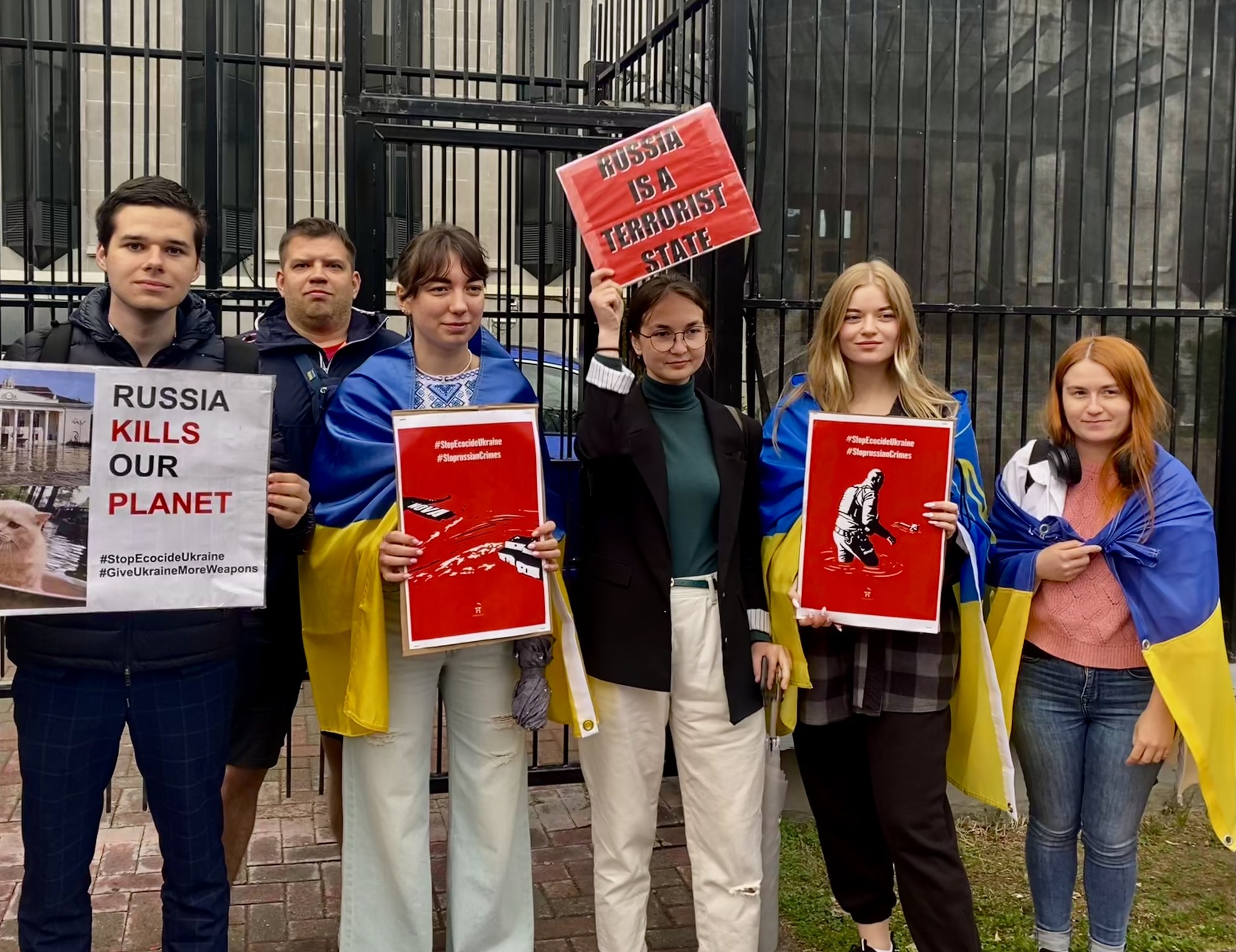
Erik Kucherenko with Ukrainian activists in Ottawa at Embassy of the Russian Federation in Canada, June 6, 2023
A few more thoughts on particular ideas to bring Ukrainians abroad closer: dual citizenship should be introduced. To minimize negative consequences thereof, it can be limited only to EU and NATO members. This would only promote Ukraine’s national security interest and strengthen Ukrainians’ links with the homeland. We should also expand opportunities for Ukrainians abroad to vote – increasing the number of polling stations and introducing either electronic or postal voting are already on the table.
Finally, we need to promote academic and professional exchanges. Why do not we have a Ukrainian variant of CUPP for an internship in the Verkhovna Rada? It should be open to all foreigners and available completely in English, yet a certain number of places should be reserved for interns willing to work in Ukrainians or at least improve it in the process.
Strengthening Ukraine’s parliamentary democracy
As the main purpose of the Program is to introduce Ukrainian young leaders to Westminster parliamentary system, I could not but reflect on the differences between the way Ukrainian and Canadian parliaments operate. With significant experience working in the Verkhovna Rada, I certainly had much to ponder about.
My key conclusions: the culture of question periods, accountability of the government, and open and structured public debate in the parliament are certainly areas where I would like to implement the Canadian experience in Ukraine. With all the heated partisanship of Canadian question periods, I certainly believe that having this true level of accountability is something that would enhance Ukraine’s democracy.
Furthermore, I think that Ukraine could also introduce formally the concept of parliamentary critics (shadow ministers). This could channel public debate in the right direction, prompt opposition parties to offer a clear and detailed alternative to the course of government that they criticize, and give voters more understanding of how the opposition would govern.
Filling our urban and rural spaces with senses and narratives
There are also some other ideas that I came up with while staying in Canada. I grew interested in the way the space of modern cities is filled with senses and narratives. I realized how important it is to fill the space with monuments, plaques, and creative installations prompting the society to remember or even rethink its approach to history, culture, its place in the world, and even its policies. Often, our cities and towns do not reflect a rich and exciting history, the past, the prominent historical figures, or even literary characters that lived here. Here, a systematic state policy would certainly make a difference.
From a touristic perspective, filling spaces with senses and narratives may attract a wide range of touristic audiences and help the world discover Ukraine. The state could take a leading role in this process, creating a comprehensive website or online platform recommending hundreds of thematic routes/sites and other advice.
For instance, when I planned my trip to Montreal, I thought it would be intriguing to find some routes dedicated to the legal history of the city – as Montreal is home to international conventions in so many spheres, ranging from air law to environmental law. To my regret, I did not find any. Yet helping discover even niche aspects of our history and spaces is essential for the development of tourism as well, and perhaps even more importantly, increased knowledge-sharing, public awareness, patriotism, and development of different industries.
A final remark on this – why do not we also create thematic routes tailored to particular touristic audiences? In the years preceding the fully-fledged Russian invasion, Ukraine became particularly popular among Arab tourists. Just in the first 6 months of 2021, over 17,000 tourists from Saudi Arabia, UAE, Kuwait, Oman, Qatar, and Bahrain visited Ukraine. Why do not we create thematic routes discovering the rich Muslim heritage of Ukraine, and the contribution of Muslims in the development of our statehood, sciences, and arts? Of course, this is an ideal point of entry to explaining the history of Crimean Tatars and introducing foreign tourists to the modern geopolitical contexts in which Ukraine lives. This is just one example of such a tailored approach to creating narratives and discovering new senses in our urban and rural spaces.
Value of CUPP, way forward, and advice to future CUPPers
As you have had an opportunity to see in the previous sections of this article, the CUPP experience turned out to be a very productive and useful period for me. The Program fulfills its purpose – introducing the Westminster parliamentary system to Ukraine’s youth. Beyond this, it helped me build a network of contacts and promote various ideas on the Hill.
Having participated in another internship in the European Parliament before, I am convinced that such internships as CUPP is an essential and highly enlightening experiences for future Ukrainian policy-makers. Furthermore, they strengthen ties between Ukraine and Canada, helping Ukrainian young leaders understand the Canadian context and society. Therefore, I fully support efforts in engaging the Canadian government to provide funding for the Program. It would make it more stable and certainly be in Canada’s best interest. Of course, this might be a program for a limited number of students, perhaps up to 7-10. Yet investing in these highly motivated and proactive students will certainly pay off both for Canada and Ukraine.
That said, I would like to give some advice to future CUPPers that could make their experience even more useful and fulfilling:
1. Be proactive, do not limit your workload with the tasks you receive from your MP. Seek ways to make an additional impact and promote Ukraine’s interests.
2. Approach networking seriously and systematically. This is not leisure; this is a part of your work here. A short internship on the Hill may allow you to acquire a rich network of contacts and friends in Canadian political and media circles – or may not. It depends on you and your effort. Map relevant stakeholders, MPs, and their teams that you are interested in getting acquainted with. Work on it consistently.
3. Absorb Canadian political culture – read The Hill Times distributed to your MP’s office twice a week, identify issues of concern for Canadian society, take a look and try to understand at least a little bit of parliamentary procedure.
4. Help your colleagues, especially the CUPP community on the Hill, as much as possible. Connect them with other people, and help them with their assignments and their problems.
5. Have an active time in Canada, plan sightseeing and traveling. Reflect on what you see, note ideas that you would like to bring to Ukraine.
CUPP is a fascinating Program that has given so much to generations of Ukrainian leaders. Today, it is as relevant as ever. As the CUPP community, we should certainly do everything to promote it, secure sufficient funding and support from the Canadian and Ukrainian governments. We should also explore possibilities to expand CUPP to other countries, thereby creating even more opportunities for Ukrainian youth and strengthening the quality and ethics of policy-making in Ukraine.
For me, CUPP has been certainly a very thought-provoking and enjoyable journey. And it even is not over yet!
Share on Social Media







